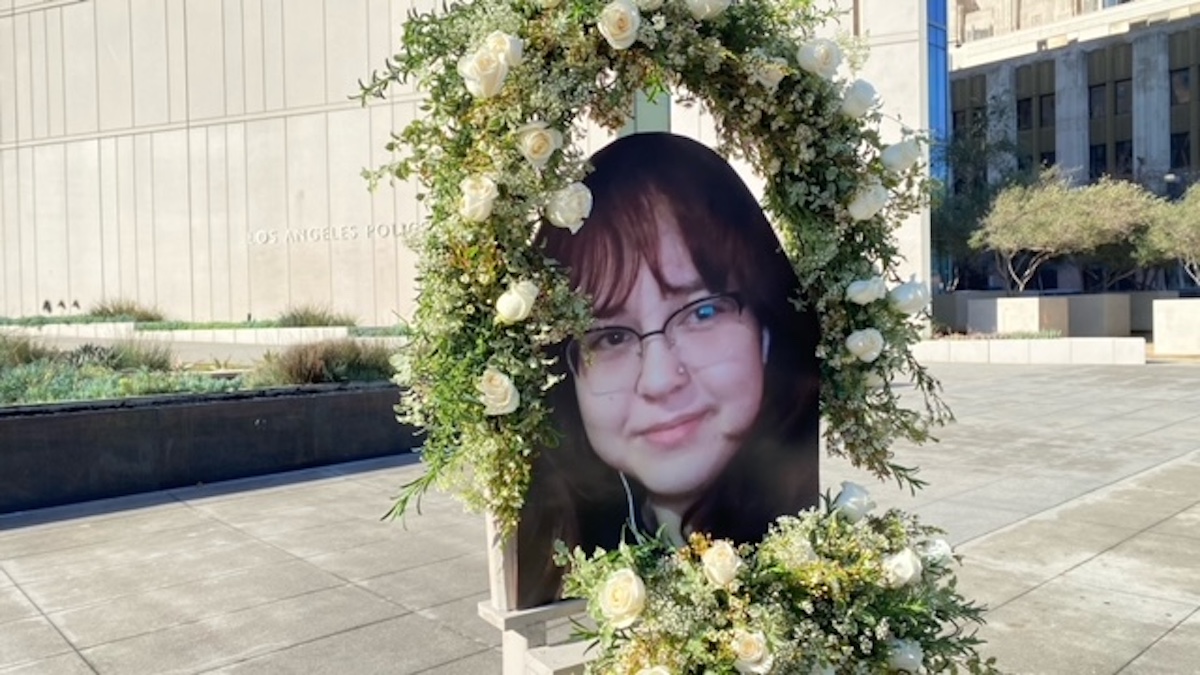Gunfire has become a regular part of Latrell Widemon’s life.
The bullet holes that pockmark the outside of her home are from earlier this summer, just about the same time her son Diante was shot.
“(The) bullet is stuck in my elbow,” her son Diante Wilkins said, pointing out where it struck his left arm.
The family lives near just a block from where the Watts Riots began 50 years ago, now a center of gang activity in Los Angeles.
“Everyday living here is hell, it’s hell,” Widemon said. “You hear gunshots every day, every night.”
Diante has to be careful about where he walks and what he wears.
“I don’t like walking around,” he said. “Walking around with blue somebody might think you’re a Crip. Walk around with red think you’re a Blood.”
He said he avoids it by wearing clothes that “ain’t blue or red.”
The most notorious rivalry in the history of gangs began on the streets of Watts, as shown in the 2008 documentary, “Crips and Bloods: Made in America.”
The fury of the riots that fed the disillusionment of a generation after an era of black activism that saw the emergence of the Black Panthers — and outrage after the assassination of leaders like Martin Luther King, Jr. were all ingredients for a time bomb that’s now been going off for more than four decades.
William Jackson and Cornell Ward are former Crips.
Local
Get Los Angeles's latest local news on crime, entertainment, weather, schools, COVID, cost of living and more. Here's your go-to source for today's LA news.
They were in the thick of it when LA exploded in gang violence in the 80s and 90s, fueled by crack cocaine.
“Been on my deathbed twice, flatlined once, and I’m still here,” said Jackson, now a devoted gang interventionist.
Coach Ward, as he’s now called, was a lieutenant in the drug empire started by notorious drug trafficker “Freeway Ricky” Ross.
That is, until the birth of his child changed his heart.
“My child was (born) as a crack baby,” Ward recalled. “She was born in the palm of my hand.”
Ward and Jackson now work with Chapter T.W.O., South LA nonprofit that tries to steer young people away from gangs.
Latrell Widemon remembers Jackson as a hard core Crip. Now he mentors her son Diante.
Jackson spends his days with Diante and his friend Diandre White, two teenagers who’ve been in and out of juvenile hall, and who face the daily pressure of joining a gang.
“(I) stay out of the way so I don’t get hit, shot, jumped,” said White.
Jackson said despite the lower visibility of some of the gang activity in the neighborhood, the gangs are still there.
“How much influence do the Bloods and Crips still have in where we’re standing?” Jackson said. “It’s a lot of influence.”
Homicides in LA have dropped dramatically since the 90s. There were more than 1,000 in 1992, the year of the LA riots, but less than 300 the past two years.
Much of the credit goes to gang interventionists like Chapter T.W.O., working together with LAPD officers like Sgt. Mark Durell.
“We can’t do it all,” Durrell said. “Everybody thinks ‘Ah, the cops got to fix,’ (but) it's the community, it’s everybody.”
Durell has had to deal with tensions between police and the black community that have risen to the surface in recent years, but said they all seem to agree on one thing: things are better in Watts than they used to be.
But a lack of resources and programs — and grinding poverty — still put too many young people at risk.
“I went to a school one time and a kid said, “Man, I’m glad they’re serving food this morning because I didn’t get any. It wasn’t my turn to eat last night.’ See how that hits you.”
On the day Latrell Widemon spoke to NBC4, candles marked the two-year anniversary where a friend was killed right in front of their home.
And the bullet holes in their home remind Widemon and her family, that 50 years after Watts fired its first shots, there’s still a war going on.
She questions what anyone gets out of the gangs.
“What are you getting out of that? What does do for you?” she asked, and scoffs at the idea that the young people who join them are looking for a family life they’re missing elsewhere. “God is your family. That’s who you’re family is. You have to have him.”


